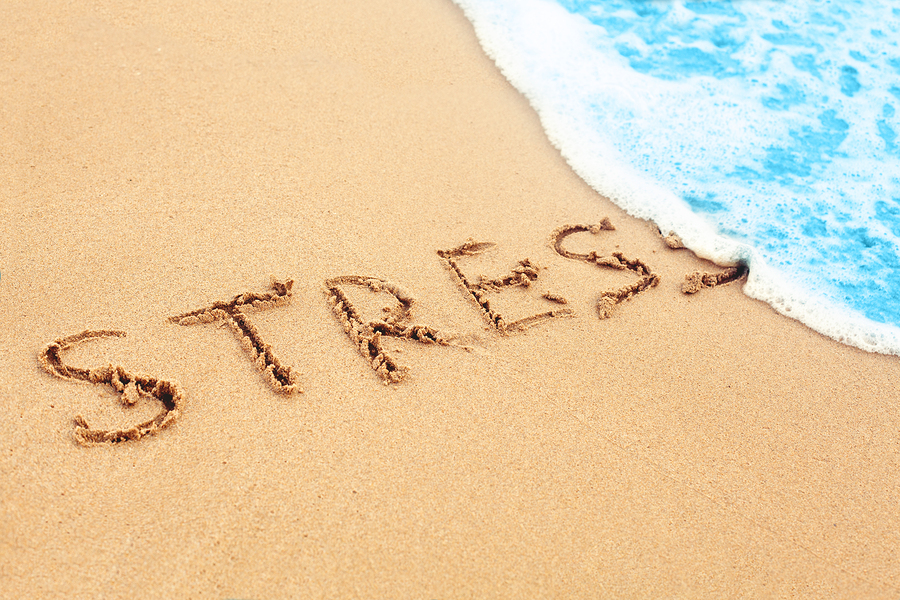The need to switch off – why it is important for your wellbeing
Are you victim of endless lists of things to do, ever increasing deadlines and perpetual alerts and reminders?
Do you find it increasingly hard to switch off and relax? If so, you are certainly not alone, so it comes as no surprise that The World Health Organisation has named stress as the health epidemic of our time.
How does stress work?
All humans have an inbuilt ‘fight or flight’ response to potential danger, a throwback to our prehistoric ancestors and an essential stress response enabling us to react – the ultimate survival tool.
Our body reacts to potential danger (stress) by releasing hormones and chemicals such as adrenaline, cortisol and norepinephrine. These hormones and chemicals respond by enabling us to run faster by diverting blood to muscles and can even shut down unnecessary bodily functions, such as digestion.
This is a very useful response to have in a situation of danger but can result in problems if it occurs too often or during inappropriate situations. Today, our feelings of stress can be triggered by anything from thinking we’re going to be late for an appointment to paying a bill.
However, some stress can be useful as it can help us to perform better but if we are unable to control when it occurs then it can become harmful.
Being over-stressed and having continually increased levels of cortisol in your body will raise blood glucose which is known to increase the risk of developing type 2 diabetes and high blood pressure. Weight gain and eating disorders are also linked to stress and chronic levels of stress can contribute to mental health conditions such as depression and anxiety.
Is stress just part of life?
Finlay Haswell, Physiologist at AXA PPP healthcare tells us that the way we live can be overwhelming, “the world we live in is hyper-stimulating and distracting with our work and personal lives overlapping. There is constant pressure to make more money, be fitter, more productive, and so on. Most of us need to learn how to switch off and understand that it is important for our overall health.”
“The times when we completely switch off has diminished. We all spend too much time looking at our computer, checking our phone or watching television and not enough time recharging our batteries.”
Tips on how to change
If you feel that you’re overly stressed then try including a relaxation routine into your day.
Finlay says: “Have you noticed that our best ideas often come while we’re out walking, cooking or in the shower? This is because during these periods of downtime a different part of our brain is allowed to work so it’s certainly worth noting how you feel when you give yourself time to switch off.”
Finlay shares with us his tips on how to give our brains some downtime:
- If you’re at work then try taking a lunch break without looking at your phone. Leave your phone in your drawer and the answer to that problem you’ve been trying to solve all day may just come to you!
- When you’re spending time with friends or your partner then switch your phone off – just 10 to 15 minutes of real face to face connection will help your brain to de-stress
- Get moving – make time to get outside and reconnect with the environment and your body. You won’t have time to check your phone while you’re walking, riding a bike or gardening. Use exercise to disconnect from your busy life – both physically and mentally.
- Go phone free – try leaving your phone at home when you go and visit friends and see how it makes you feel.
Read more on ways to manage stress and how mindfulness can improve your health.
Disclaimer
All content on Silversurfers.com is provided for general information only, and should not be treated at all as a substitute for the medical advice of your own doctor or any other health care professional. Silversurfers will not be responsible or liable for any diagnosis made by a user based on the content on www.silversurfers.com and we are also not liable for the content of any external websites or links from or to Silversurfers to any other websites. Please always consult your own doctor if you’re in any way concerned about any aspect of your health
Melina - Assistant Editor
Latest posts by Melina - Assistant Editor (see all)
- Cream Cheese Orange Bars - May 2, 2024
- Top tips for hay fever sufferers - April 14, 2024
- Paysan Breton Cream Cheese Breakfast Wraps - April 12, 2024
- 4 Homemade Sweet Treats for Easter - March 24, 2024
- Playground Memories - March 10, 2024





















